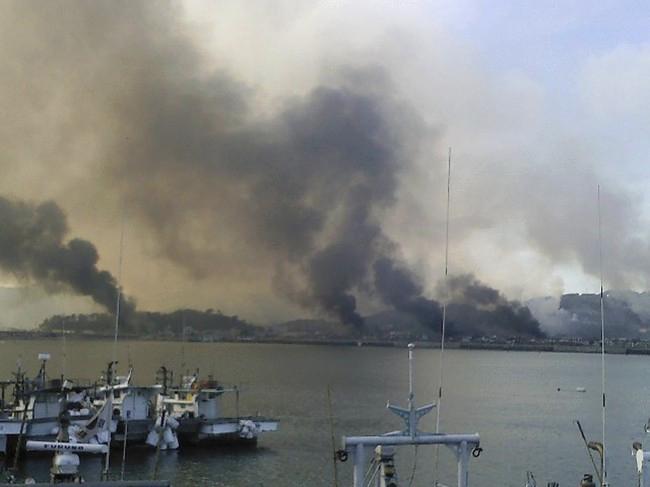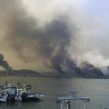
North Korean Tantrums Again Reveal Russia’s Geopolitical Dilemmas
Publication: Eurasia Daily Monitor Volume: 7 Issue: 218
By:

On November 22, the Russian government expected to bask in the light of a successful NATO Summit in Lisbon. President Dmitry Medvedev attended while NATO had produced a new Strategic Concept that treated Russia as a partner and not as a problem. European missile defense seemed to be on track to reflect Moscow’s concerns. NATO-Russian cooperation against terrorism, piracy, narcotics trafficking, and the proliferation of weapons of mass destruction was reaffirmed. There was even serious talk about deeper cooperation with regards to Afghanistan. Yet, hardly had the weekend news cycle ended when attention was diverted from Europe to the Far East where the government of the Democratic People’s Republic of Korea (DPRK) had responded to US and Republic of South Korea naval exercises off the North’s coast by using its artillery to shell the island of Yeonpyeong, on which is located both a military base and a civilian community. The artillery fire from the North killed and wounded both military personnel and civilians. The government of the Republic of Korea (ROK) responded by ordering its own artillery to silence the attacking North Korean batteries (Nezavisimaya Gazeta, November 22).
The incident came in the immediate aftermath of disclosures of what appears to be new North Korean efforts to process enriched Uranium for weapons production. One day before the shelling, the Russian press reported on US sources who had visited a North Korean site where work was progressing on the construction of a new facility for the enrichment of Uranium. These reports emphasized the nuclear expertise of the American observers and stated that North Korea seemed intent on making it clear to the outside world that it intended to produce more nuclear weapons of greater power. The fact that the North Korean authorities had made such information available to competent American observers seemed to establish the fact that the North Koreans wanted the outside world to know it was working on enriched uranium weapons. The report concluded that the US government had shared this information with the People’s Republic of China (PRC), Japan, South Korea, and Russia to address these developments (Nezavisimaya Gazeta, November 22).
On November 24, Kommersant provided a chronology of armed confrontations between the two Korean states over the last decade, which demonstrated an ongoing pattern of such events, but with an ominous increase in the number and intensity of skirmishes over the past year, beginning in November 2009. In that period, five incidents of armed conflict took place between the two Koreas, including a number involving attacks upon naval vessels and disputed islands in conjunction with exercises in the vicinity of the firings. These events included an exchange of fire between ROK warships and DPRK patrol craft in disputed territorial waters in November 2009; an exchange of artillery fire over Yeonpyeong Island, which resulted in military and civilian casualties on January 27-28, 2010, and the sinking of the ROK corvette, Cheonan with the loss of 46 sailors on March 27, which the ROK government and international experts attributed to a North Korean torpedo; the exchange of rifle fire between troops of both sides along the demilitarized zone (DMZ) in late October, and the artillery exchange between the two states on November 22. The latest incident was once again initiated by North Korea on the basis of their hostility towards ROK naval exercises in the area of Yeonpyeong Island (Kommersant, November 24).
One day later, Pravda repeated without comment the communiqué of the government of the DPRK regarding its authorization to fire on ROK territory and then announced to the world that the South Koreans had provoked the incident. The Military High Command of the DPRK spoke of repeated warnings about the violations of North Korean territory to the “South Korean Marionettes,” whom it accused of failing to take such warnings seriously and brought down upon themselves the artillery strikes by the armed forces of the DPRK (Pravda, November 25).
The Russian press response to the recent event focused on the risk of this crisis leading to open war between the two Korean states and their allies if diplomatic initiatives failed. The Russian press noted the PRC’s effort to bring the recent shelling incident under the umbrella of diplomatic talks among the Six Powers, but then gave such efforts little chance of success because the South Korean government seemed determined to take “decisive actions,” which could bring about the collapse of the North Korean regime and the unification of the entire peninsula under Seoul’s control. The Russian press quoted the recent speech by the ROK President, Lee Myung-bak, to the effect that the artillery attack was a “crime against humanity” and that “Now is the time for action, rather than words” (Nezavisimaya Gazeta, November 30).
Given the record of recent provocations from North Korea, it is clear that many in the ROK government agree with the need for action but are unsure of whether such a response would yield positive results and not just provoke additional military responses from the North. The ROK president dismissed past South Korean policy as only inviting an erratic North to engage in more provocations: “If the North carries out further provocations against the South, it will be obliged to pay a high price for this. The People of South Korea now clearly understand that continued endurance and patience do not bring any fruits except more serious provocations” (Zerkalo, November 30).
As the two Koreas exchanged threats of further actions in response to provocations from the other side, Andrei Zabolotdkikh noted that the tenor of the exchanges had taken on the character of an “endgame,” with each side pushing towards the edge of war. Zabolotdkikh pointed to the North Korean promise to rain “deadly fires on the aggressors” in the context of its warnings regarding ROK-US naval maneuvers in the Yellow Sea. Pyongyang promised that “those playing with fire” and setting in motion an escalation in tensions in the region would lead to rapid ruin as a result of war (Krasnaya Zvezda, November 30).




